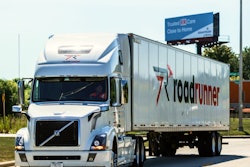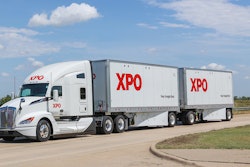In the trucking industry, dispatchers are often seen as the nerve center, a crucial link connecting the fleet in motion with the essential revenue streams that keep the operation thriving. Traditionally perceived as tactical roles focused on tracking and assigning loads, there’s a growing need for dispatchers to evolve into strategic architects of profitability. To navigate the tight margins that characterize the trucking industry, adopting a commercial orientation is not just beneficial—it’s essential.
Embrace the CEO mindset
Dispatchers should envision themselves as general managers of a fleet, wielding control over significant profit levers. This perspective involves a deep dive into revenue and cost data, identifying underperforming assets, and demanding real-time visibility into Key Performance Indicators (KPIs) like cost per loaded mile or average revenue per tractor per week.
Drill down into the details:
• Are certain customers paying higher rates for the same routes?
• How do those rates vary for direct freight vs. brokered loads?
• Are some shippers/receivers more reliable, saving you and the driver time?
• How are maintenance and fuel costs varying by truck?
• This level of scrutiny can unearth rich negotiation opportunities.
Mastering your market
In trucking, prices are in constant flux, influenced by varying capacity dynamics across regions and sectors. Even if compensation is not directly tied to these metrics, having an intimate understanding of prevailing rates by lane is crucial. This knowledge enables dispatchers to spot profit-maximizing opportunities and prioritize routes where customers are willing to pay premiums, as well as to strategically keep trucks filled, balancing discounted rates with covered fixed costs.
Leverage automation for growth
Modern trucking dispatch software solutions like Truckbase, especially when powered by AI, become a major “unlock” for automating data entry and surfacing data to make better decisions. These systems can handle repetitive tasks such as extracting details from Bills of Lading and rate confirmations, or establishing EDI links with brokers for seamless document transfers. By automating these processes, dispatchers can refocus their energies on customer relationships and growth initiatives that will have a larger impact on revenue (and more importantly, profits!).
Cultivating a commercial culture
Fostering a culture of curiosity and metrics-driven decision-making is crucial. Encourage your team to identify what your customers care about. Some shippers care more about services, reliability, and consistency. Some loads involve special knowledge for secure transport. Some brokers are shopping for the lowest rate 100% of the time — work with these brokers sparingly and know they’re only there for backhauls when you’re in a bind.
Recognize what your goals are and which types of customers, freight, and rates will help you achieve them. Building this muscle and encouraging proactive thinking yields compounding returns compared to merely following instructions.
Conclusion
Dispatchers, traditionally the custodians of on-time deliveries, customer satisfaction, and driver experience, are now poised to be key players in strategic decision-making. By intertwining a CEO mindset and data-driven approach with their operational responsibilities, dispatchers can elevate their role, contributing significantly to the financial success of their operation. In doing so, they position themselves as invaluable assets and potential senior leaders within the industry. Adopting this multifaceted approach can propel a trucking operation's earning potential to new heights, making the dispatcher's role not just operational but critically commercial.











